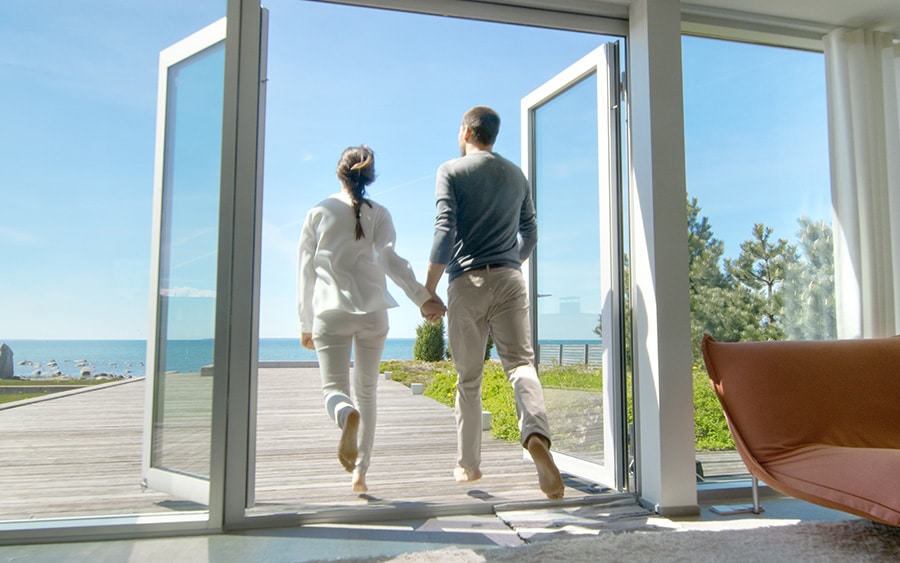While everyone enjoys sunlight, high levels of UV and solar heat can really take a toll on your home’s interior.
The exterior of most modern homes is generally created with glass. It has emerged as a trend over the years and the demand is only increasing. And while glass is visually pleasing, it also comes with an array of issues that you will need to consider.
One of the larger issues with glass is that it traps heat, which in turn heats the interior of your home. The more heat you have in your space, the more work your air conditioner has to provide. From increased energy consumption to harsh glares, occupants experiencing intense sun exposure can certainly benefit from the installation of solar screens or window tinting.
But which is better: solar screens or window tinting? Before moving forward with a purchase and installation, you should compare the pros and cons of the two. Below is a list of considerations to make to help you choose which option is the best fit for your windows.
What’s the difference between solar screens vs window tinting?
Solar sun screens are fabric mounted directly to the exterior of the glass on your home. Generally speaking, solar sun screens serve the same purpose as window film: to block harmful UV rays and mitigate the heat. Unlike window tinting, the dense mesh material used for solar sun screens obstructs exterior views from the inside.
Window tinting, on the other hand, uses a thin laminate film that adheres to the window surface to block heat and UV rays from the sun.
Is it worth it to tint house windows?
In short, yes. While solar screens can be cumbersome and block the outside view, window film solutions provide an unimpeded view of the outside, provide heat and UV protection, and save on the monthly energy bill.
Additionally, window film can provide more than just thermoregulation. There are window film types that make windows more secure, improve aesthetics and also prevent acts of vandalism, such as graffiti.
How much do each cost?
The initial material and installation cost of window film is typically more expensive than solar screens, but solar screens are often less durable and damage more quickly over time. However, window films have more shelf life and will save you more money in the long run.
In most cases, professionally installed window film will last 10-15 years without requiring replacement. Solar screens can last about 10 years.
Which is easier to maintain?
Since solar screens are created with a mesh and are separated from the glass, they tend to collect dirt and bugs and need to be cleaned regularly. Over time, this ruins their appearance.
On the other hand, window film is adhered directly to the glass, so it leaves no space for dirt and debris to get trapped in it; this makes it easy to clean, just as long as you do not use abrasive cleaners or cleaning products that don’t contain ammonia.
Which is more energy efficient?
Solar screens help keep the sun from heating up your home, but are not very effective when keeping your home cool.
Window film is designed to insulate the glass. While your window film is deflecting heat from entering the home, it’s working double time to insulate the glass, keeping cool air in and your HVAC system from wearing out.
Which is better for your home?
Both window tints and solar screens have their advantages. Solar screens are easier to install and may be more aesthetically pleasing for some home designs while window film is easier to maintain and offers a wider range of benefits.
Depending on what you want for your home, either solar screens or window film can be viable options.
Contact Us Today!
Only you can choose which method is best for you and your family. To see if window tinting is the right choice for you, contact our window film experts today at 412-961-8468!


